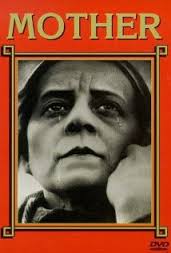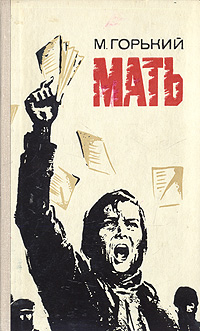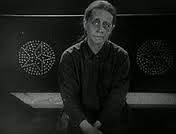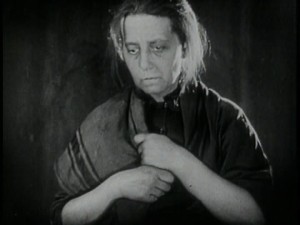28 January 2014
The 1926 silent film, Mother, was based on the novel by Maxim Gorky. Although they tell a similar story, both film and book each have their own unique advantages.
First, how does the mother differ in book and in film?
In the film, mother is far more naive. Her son never tells her what he is up to and so her motives are first and foremost to protect him, even at the expense of his ideals. By the nd of the film, though, the mother picks up the red flag and embodies her son’s ideal for herself. She did not learn, until the end, that this is what would maker her son happiest: to embody his revolutionist ideals.
In the book, the mother understands from the start. Although she is weary, at first, she accepts her son’s ideals and vows to never stand in his way. At the end, she is caught with his speech and so she sacrifices herself to read it out loud to the people at the train station. Whereas the mother in the film only sacrificed herself after her son’s death, the mother in the book did it while he was still alive.
The mother in the book, the wiser mother, seemed to be the stronger of the two.
However, the film gave us something the book coul not. The expressions put on by Vera Baranovskaya were priceless. We could really feel her depression and her sadness when she realized she landed her son in jail and we immediately know when she is happy when she manages to help her son. There was no montage juxtaposition needed when it came to the mother. There was no confusing her facial expressions.
The next important thing to consider is the relationship the mother has with her son, Palov. This relationship shapes the action of the mother.
In the film, the son stands up for his mother. He cares for her, from the start. In the book, however, Palov stands up for himself. His father then says that Palov will now be responsible for taking care of his mother. In the film he directly saves her. In the book, indirectly. Though as much as he loves mother in the film, Palov never lets her in on his Revolutionist ideals. He leaves her guessing and so she does not understand him until the end. She loves him, of course. Though she does not understand.
In the book, the son really starts to love her after he gains his Revolutionist ideals, which is when he learns to pity her. It is because of these ideal that he loves her so. Therefore, she agrees not to stand in his way and takes on these ideals, herself.
The book gives a more realistic situation. The movie, being limited to a black and white silent film, had to overexagerate and convey a lot of emotion. Though in the end of both film and book, we are left with a similar and hopeful message: it is worth to fight for your freedom.




